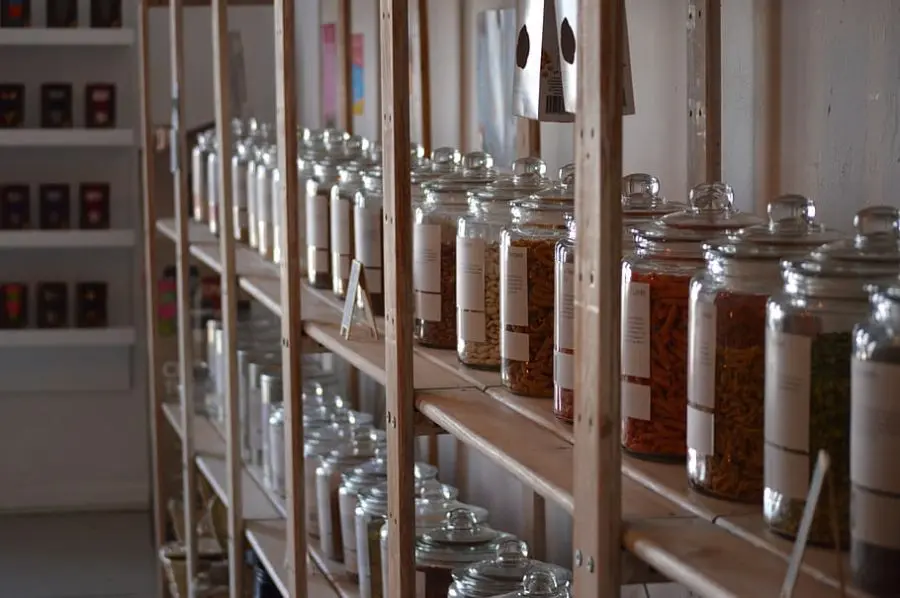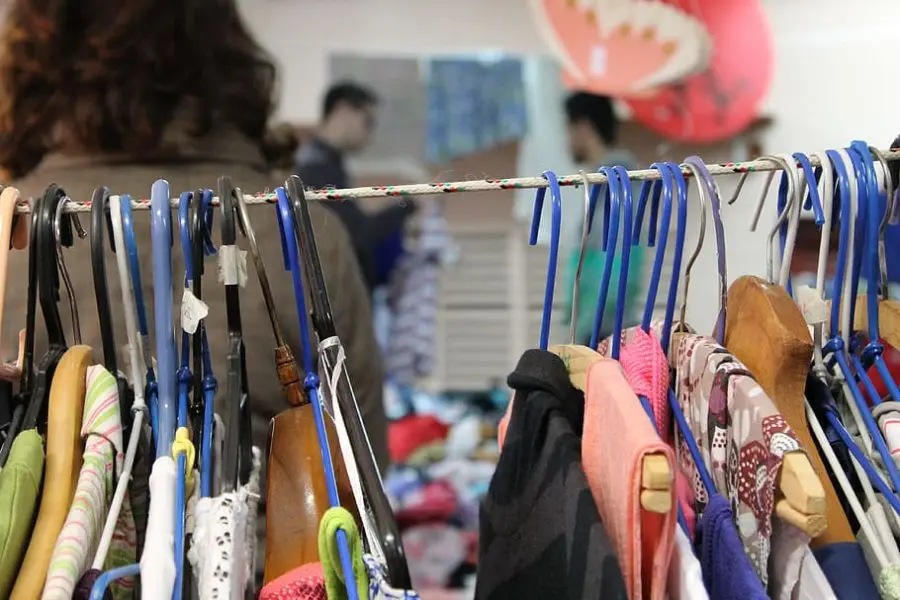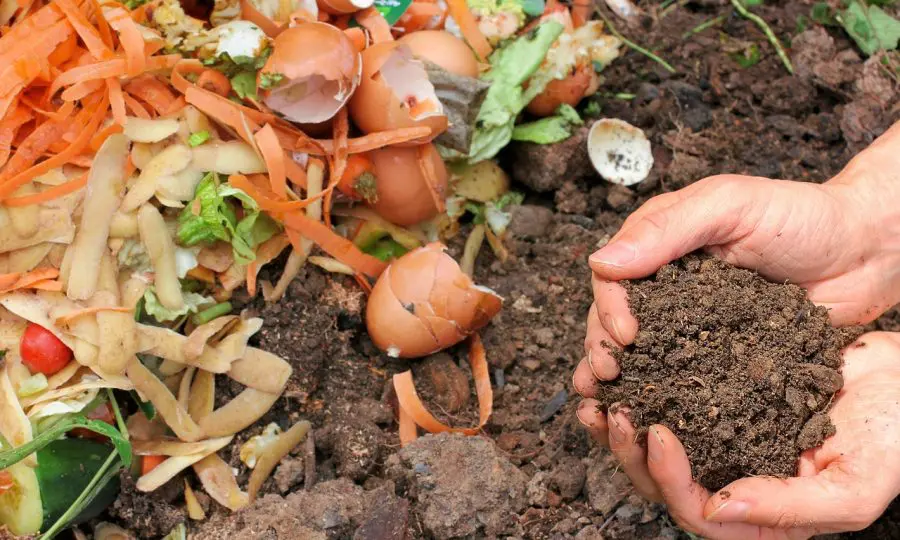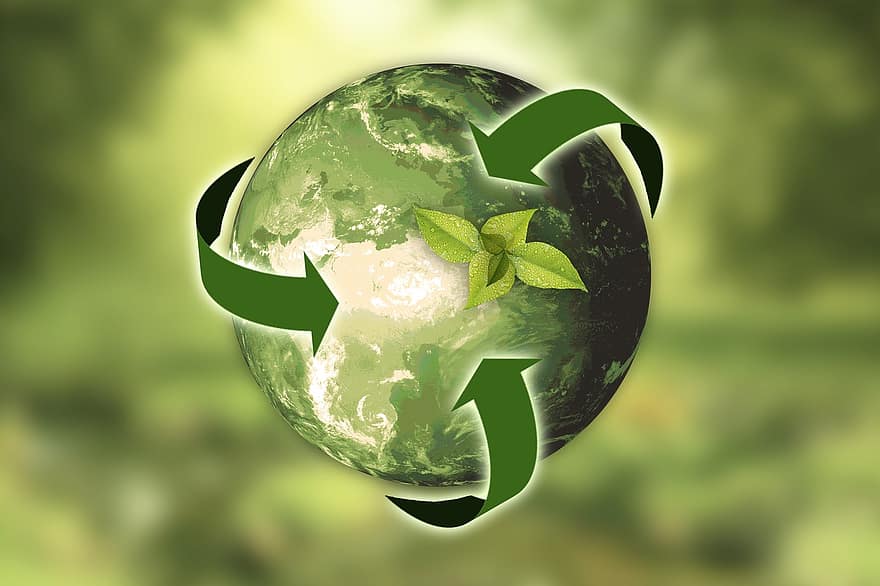
Discover how to live a zero waste lifestyle with simple, everyday changes. Embrace sustainability and make a positive impact on our planet!
Are you feeling overwhelmed by the amount of waste in your daily life?
Wondering how to live a zero waste lifestyle without turning your life upside down? You’re not alone!
Many of us are looking for ways to reduce our carbon footprint and make more sustainable choices. The good news is that living a zero waste lifestyle doesn’t have to be complicated or expensive.
In fact, with a few small changes, you can start making a huge impact on the environment.
Let’s dive into the world of zero waste and explore how you can join the movement!
How To Live a Zero Waste Lifestyle
Embarking on the journey of how to live a zero waste lifestyle? It’s an exciting and rewarding path that’s more attainable than you might think!
In this post, we’ll explore the meaning of zero waste, why it’s so crucial in today’s world and the alarming rate at which waste is being produced.
From understanding the core principles of zero waste to practical steps you can take in your kitchen, wardrobe, office, and even your garden, we’ve got you covered.
Whether you’re a seasoned eco-warrior or just getting started, there’s something here for everyone. Let’s dive in and make a positive change together!
Definition and Meaning of Zero Waste
Zero waste is more than just a buzzword; it’s a lifestyle choice that aims to minimize the amount of waste sent to landfills and incinerators.
But what does it really mean? Living a zero waste lifestyle is about making conscious decisions to reduce, reuse, and recycle.
It’s about refusing single-use plastics, embracing reusable containers, and finding ways to create less waste in our daily routine.
It’s not about perfection but progress, and every small step counts.
Think of it as a journey towards a more sustainable lifestyle, where every choice you make has a positive impact on the environment.
The Alarming Rate of Waste Production

Have you ever stopped to think about how much waste you produce in a day?
From plastic bags at the grocery store to disposable items in our kitchens, the amount of waste we generate is staggering.
In fact, the average American produces tons of trash every year!
This waste doesn’t just disappear; it ends up in landfills, contributing to greenhouse gas emissions and other environmental problems.
The good news is that by adopting a zero waste lifestyle, we can significantly reduce the amount of waste we produce and make a huge impact on our planet.
Importance of Waste Conscious Living
Being conscious of the waste we produce is not just about reducing our carbon footprint. It’s about being responsible citizens of the Earth.
Waste conscious living means understanding the environmental impact of our choices and making better ones.
It means choosing cloth bags over plastic ones, buying fresh food instead of packaged, and supporting the local economy by shopping at farmers’ markets and thrift stores.
By making these small changes, we can reduce our plastic waste, conserve natural resources, and contribute to a healthier planet.
It’s a great way to align our daily lives with our values and make a positive difference.
Personal Perspective on Zero Waste
Living a zero waste lifestyle is a personal journey, and it’s different for everyone.
Some might start with meal planning to reduce food waste, while others might focus on using reusable products like travel mugs and cloth diapers.
For me, the first step was realizing how much waste I was creating in the first place and then finding ways to reduce it.
From swapping paper towels for cloth napkins to making my own cleaning supplies, I found that small steps can lead to big changes.
And the best part? It’s not only good for the environment but also for the wallet!
Embracing a zero waste lifestyle has been a rewarding experience, and I encourage you to take the first step and see where it leads you.
Understanding zero waste
Ready to dive deeper into understanding zero waste? It’s not just a trendy phrase; it’s a movement that’s gaining momentum as more people recognize the need to reduce their environmental impact.
From the basic definition to the shift in thinking that goes beyond the old Reduce, Reuse, Recycle mantra, understanding zero waste is about embracing a lifestyle that minimizes waste in every aspect of our lives.
Whether it’s refusing single-use plastics at the grocery store or composting food scraps, every small change contributes to a larger goal.
In this section, we’ll explore what zero waste truly means, why it’s essential, and how you can start making more sustainable choices in your everyday life. Let’s get started!
Definition and Main Goal of a Zero Waste Lifestyle
Living a zero waste lifestyle is more than just recycling; it’s a holistic approach to reducing the waste we create in the first place.
The main goal? To send nothing to landfills or incinerators.
It’s about making mindful choices, like using reusable bags instead of plastic ones, buying in bulk to avoid plastic packaging, and embracing reusable containers for daily use.
It’s not about being perfect but making small changes that add up.
By adopting a zero waste lifestyle, we can reduce our environmental impact and contribute to a more sustainable future.
It’s a great way to align our actions with our values.
The Shift from Reduce, Reuse, Recycle to a Comprehensive Approach

Remember the old mantra Reduce, Reuse, Recycle? While it’s still relevant, the zero waste movement takes it a step further.
It’s not just about recycling but reducing the amount of waste we create in the first place.
It’s about refusing single-use items, reusing what we have, and recycling responsibly.
It’s about composting organic materials and supporting the local economy by shopping at bulk food stores and thrift shops.
The shift to a more comprehensive approach means looking at our daily routine and making better choices that reduce waste at every step.
Consciousness of Carbon Footprint

Have you ever thought about your carbon footprint? It’s the total amount of greenhouse gas emissions caused by our actions.
Everything from driving a car to using plastic water bottles contributes to our carbon footprint.
By being conscious of our carbon emissions and making small changes like using cloth bags, buying fresh food, and supporting local businesses, we can reduce our carbon footprint.
It’s not just good for the planet; it’s good for us too! Living a zero waste lifestyle means being aware of our impact and taking steps to reduce it. It’s a journey, but every small step makes a difference.
Shopping Habits
Let’s talk about shopping. It’s something we all do, but have you ever considered how your shopping habits impact the environment?
From plastic bags at the grocery store to disposable items, our shopping choices can generate a lot of waste.
But the good news is that we can make better choices. Bringing our own containers, choosing reusable products, and supporting local businesses are great ways to reduce waste.
Even small steps like using a reusable coffee cup or buying dry goods in bulk can make a huge impact.
By being mindful of our shopping habits, we can contribute to the zero waste movement and make a positive change.
Steps to Adopt a zero waste Lifestyle
So, you’re ready to take the plunge and adopt a zero waste lifestyle? That’s fantastic! But where do you start?
It might seem like a daunting task at first, but don’t worry; it’s all about taking small steps and making gradual changes.
From your kitchen practices to your shopping habits, office routines, personal care, and even gardening, there are countless ways to reduce waste in your daily life.
In this section, we’ll walk you through some practical and achievable steps to help you on your journey towards a zero waste lifestyle.
Whether you’re a beginner or looking to up your game, these tips and tricks will set you on the right path. Let’s dive in!
Kitchen Practices
The kitchen is often the heart of the home, but it can also be the source of a lot of waste.
From food scraps to plastic packaging, it’s easy to see how things can pile up.
But transforming your kitchen into a zero waste haven is not only possible but also fun and rewarding!
In this section, we’ll explore some simple and effective kitchen practices that can help you reduce waste and embrace a more sustainable lifestyle.
From replacing disposables with reusables to buying in bulk and loving your leftovers, these tips will help you make your kitchen a great place to start your zero waste journey. Let’s get cooking!
Replace Disposables with Reusables
Paper Towels to Cloth Napkins: How many paper towels do you go through in a week?
By swapping them for cloth napkins, you can reduce a significant amount of waste.
Cloth napkins are not only reusable but also add a touch of elegance to your dining experience. It’s a small change with a big impact!
Plastic Utensils to Stainless Steel or Bamboo: Say goodbye to single-use plastic utensils and embrace reusable options like stainless steel or bamboo. They’re durable, eco-friendly, and a great way to reduce plastic waste in your kitchen.
Plastic Water Bottles to Reusable Bottles: Investing in a reusable water bottle is a fantastic way to cut down on single-use plastic bottles. Fill it up, take it with you, and stay hydrated without contributing to plastic waste.
Buy in Bulk to Reduce Packaging Waste
Use Your Own Containers: Next time you head to the grocery store, bring your own containers. Many stores offer bulk food sections where you can fill up on dry goods without the unnecessary plastic packaging.
Choose Glass Jars and Beeswax Wraps: Store your bulk purchases in glass jars and use beeswax wraps instead of plastic wrap. They’re reusable, look beautiful on your shelves, and help keep your food fresh.
Support Local Bulk Stores: Shopping at local bulk stores is a great way to support the local economy and reduce packaging waste. From grains to spices, you can find almost everything you need without the excess packaging.
Embrace Leftovers and Compost What Can’t Be Used
Love Your Leftovers: Leftovers are a treasure, not a burden! Get creative with your meals and turn yesterday’s dinner into today’s lunch. It’s a great way to reduce food waste and enjoy delicious meals.
Compost Food Scraps: Not everything can be reused, but that doesn’t mean it has to go to waste.
Composting food scraps turns them into nutrient-rich soil. Whether you have a backyard compost bin or use a community garden, composting is a great way to give back to the Earth.
Plan Your Meals: Meal planning helps you buy only what you need, reducing food waste and saving money. It’s a win-win!
These kitchen practices offer practical and achievable ways to reduce waste and embrace a zero waste lifestyle.
By making these small changes, you can make a huge impact on the environment and feel good about the choices you make in your everyday life. Happy cooking!
Wardrobe and Shopping Habits

Your wardrobe might not be the first place you think of when considering a zero waste lifestyle, but it’s an area where you can make some significant changes.
From the clothes we buy to how we care for them, our wardrobe and shopping habits play a vital role in our environmental impact.
Ever thought about how many plastic bags you’ve collected from shopping trips or how fast fashion contributes to waste?
In this section, we’ll explore ways to make your wardrobe more sustainable and how to shop with a zero waste mindset.
Whether it’s thrifting, refusing fast fashion, or simply taking better care of what you have, these tips will help you dress with the planet in mind. Let’s get started!
Shop Second-Hand
Thrift Stores and Vintage Shops: Who doesn’t love a good deal? Thrift stores and vintage shops are not only great places to find unique and affordable pieces, but they also help keep clothing out of landfills. By shopping second-hand, you’re giving old clothes a new life and reducing the demand for new products.
Online Platforms: Platforms like online thrift shops and social media marketplaces are becoming increasingly popular for buying and selling second-hand clothing. It’s a convenient way to shop sustainably from the comfort of your home.
Clothing Swaps: Organizing or participating in clothing swaps with friends or community members is a fun and social way to refresh your wardrobe without buying new. It’s all about sharing and reusing!
Refuse Fast Fashion

Understand the Impact: Fast fashion might be cheap and trendy, but it often comes with a high environmental cost.
From wasteful production practices to poor working conditions, the fast fashion industry has significant negative impacts.
Make Conscious Choices: Instead of falling for the latest trends, focus on building a timeless and versatile wardrobe. Choose pieces that you love and will wear for years to come.
Support Ethical Brands: If you do buy new, consider supporting brands that prioritize sustainability and ethical practices. It might cost a bit more, but the quality and values behind the products are worth it.
Invest in Quality
Choose Durable Materials: Investing in quality clothing made from durable materials means your clothes will last longer. It might cost more upfront, but it saves money in the long run and reduces waste.
Care for Your Clothes: Taking proper care of your clothing can extend its lifespan significantly. Follow care instructions, mend small tears, and treat stains promptly. Your clothes will thank you!
Quality over Quantity: Instead of buying lots of cheap items that won’t last, focus on key pieces that you love and will wear often. A well-curated wardrobe not only looks great but also aligns with a zero waste lifestyle.
These wardrobe and shopping habits are practical steps towards a more sustainable and conscious way of dressing.
By shopping second-hand, refusing fast fashion, and investing in quality, you can make a positive impact on the environment and feel good about the choices hanging in your closet. Happy thrifting!
Office and Work Habits
The office might seem like an unlikely place to start your zero waste journey, but it’s filled with opportunities to make a difference.
Think about it: from the paper we print to the disposable cups at the coffee machine, our work habits can contribute to a lot of waste.
But the good news is that making your office more eco-friendly is easier than you might think! In this section, we’ll explore some simple and effective ways to reduce waste in your workplace.
Whether you’re working from a corporate office or your home desk, these tips will help you create a more sustainable work environment.
Ready to make your 9-to-5 a little greener? Let’s dive in!
Bring Your Own Lunch
Pack in Reusable Containers: Instead of using disposable items for your lunch, pack your meal in reusable containers. It’s a simple way to reduce plastic waste and enjoy your lunch in style.
Use Cloth Napkins and Real Utensils: Swap out paper napkins and plastic utensils for cloth napkins and real silverware.
It’s a small change that can make a big difference in reducing waste.
Support Local Eateries with Sustainable Practices: If you prefer to eat out, consider supporting local restaurants that use sustainable practices, like offering discounts for bringing your own containers. It’s a great way to enjoy a meal out while still being mindful of waste.
Go Digital
Reduce Paper Usage: Think before you print! Going digital not only saves paper but also makes organization and collaboration easier.
Use digital notes, share documents online, and embrace digital signatures to minimize paper waste.
Utilize Digital Tools: From project management to communication, there are countless digital tools that can help you work more efficiently and reduce the need for physical resources.
Encourage Digital Communication: Encourage colleagues to share information digitally rather than printing. It’s a team effort and every small step counts!
Introduce Recycling Practices
Set Up Recycling Stations: Make recycling easy by setting up clearly labeled recycling stations in common areas. Provide separate bins for paper, plastic, and other recyclable materials.
Educate Your Team: Sometimes, people want to recycle but aren’t sure how. Provide information on what can be recycled and encourage your team to participate. Education is key to successful recycling!
Consider E-Waste: Don’t forget about electronic waste! Old computers, phones, and other electronics can often be recycled or donated. Look for local e-waste recycling programs to dispose of these items responsibly.
These office and work habits offer practical ways to reduce waste in your daily work routine.
By bringing your own lunch, going digital, and introducing recycling practices, you can create a more sustainable work environment.
It’s not only good for the planet but also fosters a positive and responsible workplace culture. Happy green working!
Bathroom and Personal Care

The bathroom might be a small space, but it’s often filled with opportunities to make more sustainable choices.
From the toothpaste tube to the shampoo bottle, our bathroom, and personal care routines can contribute to a surprising amount of waste.
But don’t worry, making your bathroom a zero waste zone is not only doable but can also add a touch of luxury to your daily routine.
In this section, we’ll explore ways to simplify your personal care products, make your own cosmetics, and even find sustainable alternatives for toilet paper and shampoo bars.
Ready to pamper yourself and the planet at the same time? Let’s dive in!
Simplify Cleaning Supplies
Use Natural Ingredients: Many cleaning supplies can be made with simple, natural ingredients like vinegar, baking soda, and essential oils.
Not only are they effective, but they also reduce the need for harsh chemicals and plastic packaging.
Reusable Cleaning Cloths: Instead of disposable cleaning wipes, consider using reusable cloths or old towels. They can be washed and reused, reducing waste and saving money.
Buy in Bulk: If making your own cleaning supplies isn’t your thing, look for stores that offer bulk cleaning products. Bring your own container and refill as needed. It’s a great way to reduce plastic waste.
Make Your Own Cosmetics
DIY Beauty Recipes: From face masks to body scrubs, there are countless DIY beauty recipes online that use natural ingredients. Making your own cosmetics allows you to control what goes into them and reduce packaging waste.
Reusable Containers: Store your homemade cosmetics in reusable containers like glass jars or metal tins. They look lovely on your bathroom shelf and are eco-friendly.
Support Sustainable Brands: If DIY isn’t your style, look for brands that prioritize sustainable practices, like using minimal packaging or offering refill options.
Sustainable Toilet Paper and Shampoo Bars
Choose Eco-Friendly Toilet Paper: Did you know that some toilet paper brands use bamboo or recycled materials?
It’s a small change that can make a big difference in reducing your bathroom’s environmental impact.
Embrace Shampoo Bars: Shampoo bars are a fantastic alternative to traditional bottled shampoo. They last longer, reduce plastic waste, and come in various options to suit your hair type.
Consider Other Sustainable Personal Care Products: From conditioner bars to reusable menstrual cups, there are many sustainable personal care products available. Explore and find what works best for you.
These bathroom and personal care practices offer practical and enjoyable ways to reduce waste in your daily routine.
By simplifying cleaning supplies, making your own cosmetics, and embracing sustainable alternatives like shampoo bars, you can create a luxurious and eco-friendly bathroom experience.
It’s self-care with a conscience, and it feels fantastic!
Zero Waste in the Garden and Community
Gardening and community involvement might not be the first things that come to mind when thinking about a zero waste lifestyle, but they offer some of the most rewarding opportunities to make a difference.
Whether you have a sprawling garden or just a few potted plants, there are ways to cultivate a greener thumb.
And let’s not forget about the power of community! From joining a community garden to supporting ethical living practices in your neighborhood, there’s so much we can achieve together.
In this section, we’ll explore how to grow your own food, embrace community gardens, and foster ethical living in your local community. Ready to get your hands a little dirty for a good cause? Let’s dig in!
Growing Your Own Food
Start Small with Herbs and Veggies: You don’t need a huge garden to grow your own food. Start with herbs on your windowsill or a few vegetable plants in pots. It’s a rewarding way to enjoy fresh food and reduce waste.
Compost Your Food Scraps: Composting kitchen scraps turns waste into nutrient-rich soil for your garden. It’s a beautiful cycle that benefits both your plants and the environment.
Use Natural Pest Control: Instead of chemical pesticides, consider natural alternatives like neem oil or introducing beneficial insects. It’s a more sustainable way to keep your garden healthy.
Harvest Rainwater: Collecting rainwater in barrels is a great way to conserve water and keep your garden thriving. Every drop counts!
Community Gardens and Ethical Living
Join a Community Garden: Community gardens are a fantastic way to grow food, learn from others, and foster a sense of community.
Even if you don’t have space for a garden at home, community gardens offer a place to cultivate and connect.
Support Local Farmers Markets: Shopping at farmers markets supports local growers and offers fresh, seasonal produce. Bring your reusable bags and enjoy the vibrant community atmosphere.
Promote Ethical Living in Your Community: From organizing clean-up events to advocating for sustainable practices in your neighborhood, there are many ways to promote ethical living. It’s about building a community that cares for the environment and each other.
Share and Swap: Organize plant swaps or share excess produce with neighbors. It’s a fun way to connect with others and embrace the zero waste movement.
These garden and community practices offer fulfilling ways to reduce waste and foster a sense of connection with both the Earth and those around you.
By growing your own food, participating in community gardens, and promoting ethical living, you can make a positive impact that goes beyond your own backyard.
It’s about nurturing growth, not just in plants but in community and consciousness. Happy gardening!
The Five Principles of Zero Waste

The Five Principles of Zero Waste are like the guiding stars on your journey to a more sustainable lifestyle.
They’re not just abstract ideas. They’re practical and actionable steps that anyone can incorporate into their daily routine.
From refusing what you don’t need to composting organic matter, these principles are the core of the zero waste movement.
They help us rethink our relationship with waste and make better choices that benefit both ourselves and the planet.
In this section, we’ll explore each principle in detail, offering real-world examples and tips to make them a natural part of your life.
Ready to embrace the heart of zero waste? Let’s dive into these five essential principles!
Refuse What You Don’t Need
Say No to Single-Use Items: From plastic utensils to disposable cups, refusing single-use items is a powerful way to reduce waste.
Carry reusable bags, travel mugs, and utensils to make this practice easy and convenient.
Avoid Unnecessary Packaging: When grocery shopping, choose products with minimal or no packaging.
Bulk food stores are a great place to shop without all the extra wrapping.
Set Boundaries with Freebies: Freebies and promotional items might be tempting, but they often end up as clutter.
Politely decline what you don’t need, and focus on what truly adds value to your life.
Reduce What You Do Use
Mindful Consumption: Be conscious of what you buy and why. Focus on quality over quantity, and invest in items that will last. It’s not just about buying less but making better choices.
Energy and Water Conservation: Simple habits like turning off lights when not in use or fixing leaky faucets can reduce your consumption of resources. Every small step counts towards a more sustainable lifestyle.
Meal Planning: Planning meals helps reduce food waste and ensures that you buy only what you need. It’s a win-win for your wallet and the environment.
Reuse as Much as Possible
Embrace Reusable Products: From cloth napkins to glass jars, reusable products can replace many disposable items in your daily routine. It’s a simple switch that makes a huge impact.
Upcycle and Repurpose: Get creative with old clothes, containers, and household items. Upcycling and repurposing give new life to things that might otherwise be thrown away.
Share and Borrow: Before buying something new, consider borrowing or sharing with friends and neighbors. It fosters community connections and reduces the need for new products.
Recycle What Can’t Be Refused or Reduced

Know Your Local Recycling Rules: Recycling can be confusing, but understanding your local rules ensures that you recycle effectively. Take the time to learn what can and can’t be recycled in your area.
Avoid Contamination: Properly clean and sort recyclables to avoid contamination. It helps ensure that your efforts actually contribute to recycling rather than ending up in a landfill.
Consider Special Recycling Programs: Some items, like electronics or batteries, require special recycling programs. Look for local options to dispose of these items responsibly.
Rot (Compost) Organic Waste

Home Composting: Composting food scraps and organic materials at home turns waste into valuable soil.
Whether you have a backyard compost bin or a small worm bin, composting is an essential part of zero waste living.
Utilize Community Composting: If home composting isn’t an option, look for community composting programs or farmers markets that accept food scraps.
Understand What Can Be Composted: Not all organic matter is suitable for composting. Educate yourself on what can and can’t be composted to make the most of this practice.
These five principles of zero waste are more than just guidelines; they’re a way of life.
By refusing, reducing, reusing, recycling, and composting, you’re taking actionable steps toward a more sustainable lifestyle.
It’s about making conscious choices that align with your values and contribute to a healthier planet. Happy zero-wasting!
The Importance of Zero Waste

The importance of zero waste goes beyond just reducing the amount of trash we produce.
It’s a holistic approach that touches every aspect of our lives, from the way we shop to the choices we make at home and in our community.
Embracing a zero waste lifestyle is about more than just minimizing waste; it’s about understanding the environmental impact of our choices, supporting the local economy, and fostering a more sustainable lifestyle.
In this section, we’ll delve into why zero waste matters, exploring its environmental, economic, and social significance.
Ready to discover the profound impact small changes can make? Let’s uncover the true importance of zero waste!
Environmental and Economic Impact
Reduces Landfill Waste: By embracing a zero waste lifestyle, we can significantly reduce the amount of waste sent to landfills. This not only conserves land but also minimizes pollution.
Supports Local Economy: Shopping at farmers markets, thrift stores, and local businesses keeps money within the community and often promotes more sustainable practices.
Saves Resources: Using reusable products and buying in bulk reduces the need for new raw materials and energy to produce disposable items. It’s a win for both the environment and your wallet.
Role of Individuals in Driving Change
Personal Responsibility: Each of us has the power to make choices that align with a zero waste lifestyle. From refusing single-use plastics to composting food scraps, our daily decisions add up.
Community Engagement: By participating in community clean-ups, supporting local sustainability initiatives, and sharing knowledge, individuals can inspire others to join the zero waste movement.
Advocacy and Policy Influence: Individuals can also advocate for policies that support waste reduction and environmental protection. Your voice matters, and it can lead to meaningful change.
Environmental Protection and Preservation of Resources
Conserves Natural Resources: Reducing, reusing, and recycling helps conserve natural resources like water, minerals, and forests. It’s about stewarding the Earth’s bounty responsibly.
Protects Wildlife: Reducing plastic waste and pollution helps protect wildlife and their habitats. Every choice to minimize waste contributes to a healthier ecosystem.
Promotes Sustainable Practices: Embracing zero waste encourages sustainable farming, manufacturing, and consumption practices. It’s a holistic approach to living in harmony with the planet.
Reduction of Greenhouse Gas Emissions
Minimizes Carbon Footprint: Waste reduction directly impacts greenhouse gas emissions. By composting organic matter, recycling, and making sustainable choices, we can reduce our carbon emissions.
Supports Clean Energy: Choosing products made with renewable energy and supporting businesses that prioritize sustainability helps reduce reliance on fossil fuels.
Encourages Climate-Conscious Choices: Understanding the connection between waste and climate change empowers us to make choices that align with a healthier planet.
The importance of zero waste is multifaceted, touching on environmental, economic, and social aspects of our lives.
By understanding and embracing the principles of zero waste, we can make a positive impact that goes beyond just reducing trash.
It’s about creating a lifestyle that respects the Earth, supports our community, and fosters a sense of responsibility and connection.
It’s not just a trend; it’s a way of life that offers a path to a more sustainable and fulfilling future.
Education and Awareness
Education and awareness are the cornerstones of any significant change, and the zero waste movement is no exception.
It’s not just about knowing what to recycle or how to compost; it’s about understanding the bigger picture of how our choices affect the planet.
From educating ourselves about sustainable practices to sharing knowledge with friends and family, awareness is the first step towards a more conscious and responsible lifestyle.
In this section, we’ll explore ways to educate ourselves and others, discover popular books and resources, and learn how to make the zero waste lifestyle accessible and enjoyable for everyone.
Ready to become a zero waste advocate in your community? Let’s dive into the world of education and awareness!
Educating Yourself and Others

Start with Self-Education: Understanding the principles of zero waste begins with self-education.
From online blogs to local workshops, there are countless resources to help you learn the ins and outs of a zero waste lifestyle.
Share Knowledge with Friends and Family: Once you’ve embraced the zero waste lifestyle, share your knowledge with others.
Whether it’s demonstrating how to make beeswax wraps or explaining the benefits of composting, your passion can inspire others.
Engage with Social Media: Platforms like Instagram and Facebook are filled with zero waste influencers and communities. Engaging with these platforms can provide daily inspiration, tips, and support.
Host Workshops or Meetups: If you’re feeling adventurous, consider hosting a zero waste workshop or meetup in your community. It’s a fun way to connect with others and spread awareness.
Popular Books and Resources
Read Inspirational Books: Authors like Bea Johnson have written inspiring books on zero waste living.
These books offer practical advice, personal anecdotes, and motivation to embrace a more sustainable lifestyle.
Explore Online Blogs and Websites: The internet is filled with blogs, websites, and YouTube channels dedicated to zero waste.
From DIY tutorials to product reviews, there’s a wealth of information at your fingertips.
Utilize Local Libraries: Don’t forget about your local library! Many libraries offer books, magazines, and even classes on sustainability and zero waste. It’s a free resource that supports lifelong learning.
Connect with Local Organizations: Many cities have local organizations and nonprofits focused on sustainability.
Connecting with these groups can provide local insights, volunteer opportunities, and community support.
Education and awareness are more than just learning facts. They’re about building a community, inspiring change, and empowering ourselves and others to live in harmony with the Earth.
By educating ourselves, sharing knowledge, and utilizing various resources, we can make the zero waste lifestyle accessible and enjoyable for everyone. It’s a journey of continuous learning, growth, and connection. Happy learning!
Zero-Waste Lifestyle FAQs
Embarking on a zero waste lifestyle is an exciting journey, but it’s natural to have questions along the way.
From understanding what zero waste means to figuring out how to make it affordable, there are common questions that many of us encounter.
In this FAQs section, we’ll address those burning questions, clear up misconceptions, and provide practical answers to help you navigate the world of zero waste with confidence.
Whether you’re a seasoned zero waster or just starting out, these FAQs are here to guide you.
Ready to demystify the zero waste movement? Let’s dive into the questions that are on everyone’s minds!
Q: What exactly does zero waste mean?
A: Zero waste means striving to eliminate waste by reducing, reusing, recycling, and composting.
It’s not about completely eradicating all waste but making conscious choices to minimize waste and its environmental impact.
Q: Is zero waste just about recycling?
A: While recycling is an essential part of the zero waste movement, it’s not the only focus.
Zero waste emphasizes refusing unnecessary items, reducing consumption, reusing as much as possible, and composting organic matter. Recycling is just one aspect of a holistic approach.
Q: How can I start living a zero waste lifestyle?
A: Start small by identifying areas where you can reduce waste, such as using reusable bags instead of plastic ones or buying in bulk.
Gradually incorporate more sustainable practices into your daily routine, and don’t be afraid to learn and adapt as you go.
Q: Do I need to buy new products to go zero waste?
A: Not necessarily! Many zero waste practices involve using what you already have or finding reusable alternatives.
Investing in quality reusable products can be beneficial, but it’s not about buying all new items.
Q: What are some common mistakes in zero waste living?
A: Common mistakes include trying to do everything at once, getting discouraged by setbacks, or focusing only on recycling.
Embracing zero waste is a journey, and it’s okay to take small steps and learn from mistakes.
Q: How can I make zero waste living affordable?
A: Zero waste living doesn’t have to be expensive. Shopping second-hand, buying in bulk, and making your own cleaning or personal care products can save money.
Focus on small changes that fit your budget, and remember that every effort counts.
These FAQs provide a glimpse into the zero waste lifestyle, addressing common questions, misconceptions, and practical aspects of embracing this sustainable way of living.
Whether you’re just curious or ready to dive in, these answers offer guidance and encouragement for your zero waste journey.
How To Live A Zero Waste Lifestyle Conclusion

As we wrap up this comprehensive guide on how to live a zero waste lifestyle, it’s time to reflect on the journey we’ve taken together.
From understanding the principles of zero waste to exploring practical steps in various aspects of daily life, we’ve uncovered the beauty and simplicity of a lifestyle that respects our planet.
The conclusion isn’t just a summary; it’s an invitation to continue exploring, learning, and growing in your zero waste journey.
Whether you’re taking your first step or looking to deepen your commitment, the path to a more sustainable lifestyle is filled with opportunities, community, and fulfillment.
Ready to take those small steps toward a big change? Let’s conclude with inspiration and encouragement for the road ahead!
Encouraging Readers to Take Small Steps
Start Where You Are: You don’t have to overhaul your entire life overnight to embrace a zero waste lifestyle.
Small changes, like using reusable bags instead of plastic ones or composting food scraps, can make a huge impact.
Celebrate Progress: Every effort counts, and it’s essential to celebrate progress rather than strive for perfection.
Whether you’ve just started composting or have reduced your plastic waste, acknowledge and celebrate your achievements.
Join a Supportive Community: Engaging with a community of like-minded individuals can provide support, inspiration, and encouragement. From local meetups to online forums, there’s a vibrant community ready to welcome you.
Emphasizing the Benefits of a Zero Waste Lifestyle
Environmental Stewardship: Living a zero waste lifestyle aligns with caring for our planet.
From reducing greenhouse gas emissions to conserving natural resources, your choices contribute to a healthier Earth.
Economic Savings: Many zero waste practices, such as buying in bulk and using reusable products, can save money in the long run.
It’s an investment in both your wallet and the environment.
Personal Fulfillment and Well-Being: Embracing zero waste often leads to a more mindful and fulfilling way of living.
It’s about connecting with your values, community, and the world around you.
In conclusion, the journey to a zero waste lifestyle is an exciting and rewarding path filled with opportunities for growth, connection, and positive impact.
It’s not about perfection but progress, small steps, and continuous learning. By understanding the principles, embracing practical steps, and celebrating the benefits, you can make a meaningful difference in your life and the world around you.
So go ahead, take those small steps, and enjoy the journey towards a more sustainable and fulfilling life.
The road to zero waste is a beautiful path, and it’s one that’s open to everyone. Happy zero-wasting!














